How to Handle Long-Term Vacancies in Jupiter’s Rental Market: A Comprehensive Guide
Understanding Long-Term Vacancies and Their Impact
Long-term vacancies in rental properties can be a significant challenge for landlords and property managers in Jupiter’s rental market. This issue is not just about the loss of rental income but can also lead to the deterioration of the property, increased maintenance costs, and a negative impact on property value. Addressing this problem effectively requires a well-thought-out strategy, one that incorporates both proactive measures and immediate solutions to mitigate the effects of an extended vacancy.
Why Long-Term Vacancies Occur
There are various reasons why a rental property might remain vacant for an extended period. Identifying the root cause is crucial to addressing the issue. Some common causes include:
- Overpricing: If the rent is too high compared to similar properties in the area, it can deter potential tenants.
- Property Condition: Properties that are poorly maintained or outdated can make it difficult to attract renters, especially in competitive markets like Jupiter.
- Location Issues: Even in desirable areas like Jupiter, factors such as limited access to public transportation, schools, or other amenities can influence rental demand.
- Marketing Challenges: An insufficient or ineffective marketing strategy can result in the property being overlooked by prospective tenants.
- Seasonal Fluctuations: In markets with seasonal rental demand, such as Jupiter, certain times of the year may experience slower leasing activity.
Identifying the Core Problem
Before implementing any solutions, it’s vital to understand why your property is sitting vacant. A comprehensive assessment can involve:
- Market Comparison: Researching the local rental market is essential. Compare your property with similar units in Jupiter to evaluate whether the price is competitive and if the amenities and condition are up to par.
- Tenant Feedback: If possible, gather feedback from past tenants or those who viewed the property but decided against renting. This feedback can provide insights into potential shortcomings.
- Online Presence Review: Evaluate your property’s listing online. Does the description clearly highlight its key selling points? Are the photos of high quality and do they showcase the property in its best light?
By conducting this research, you’ll be in a better position to take targeted action.
Step-by-Step Guide to Address Long-Term Vacancies
1. Revise the Rent and Lease Terms
One of the first steps in dealing with a long-term vacancy is reviewing the pricing strategy. If your rent is higher than comparable properties in the area, it may be a deterrent to prospective tenants. Here’s what you can do:
- Competitive Pricing: Ensure your rent is aligned with the local market. Look at similar rental properties in Jupiter and adjust accordingly. If necessary, consider lowering the rent slightly or offering incentives such as one month of free rent to attract new tenants.
- Flexible Lease Terms: Offering flexible lease terms can be an attractive option for renters. Some tenants may prefer short-term leases, while others may be looking for long-term commitments. Being flexible can widen your tenant pool and increase your chances of filling the vacancy faster.
2. Enhance Property Appeal
The condition and appeal of your property play a major role in attracting tenants. If the property appears worn out, it could discourage interest. Here are a few ways to improve the property’s appeal:
- Update and Renovate: Even small updates like fresh paint, updated appliances, or new flooring can make a significant difference. If the property is outdated, investing in a renovation may be necessary.
- Curb Appeal: First impressions matter. Ensure the exterior of the property is well-maintained, with tidy landscaping and a clean entryway.
- Professional Staging: If the property is vacant, consider staging it to give prospective tenants a sense of how the space could be used. Staging can help renters visualize themselves living in the property.
3. Optimize Marketing Strategies
Effective marketing is key to reducing vacancy time. If your property isn’t getting the attention it deserves, it’s time to rethink your marketing strategy:
- High-Quality Photos and Virtual Tours: In today’s digital age, tenants often begin their search online. Make sure you have high-quality, well-lit photos of the property. Virtual tours or video walkthroughs can further engage potential renters and allow them to experience the property remotely.
- Advertise Across Multiple Platforms: Relying on a single listing site can limit your exposure. Use multiple online platforms such as Zillow, Realtor.com, Craigslist, and social media channels to ensure you reach as many prospective tenants as possible.
- Targeted Advertising: Tailor your marketing efforts to the type of tenant you want to attract. If your property is near a university or business district, target students or young professionals. For family-friendly properties, focus on marketing to families with children.
By casting a wider net, you increase your chances of finding the right tenant faster.
4. Offer Incentives
Sometimes offering incentives can make your property more attractive to potential tenants. These incentives can vary based on your situation and market conditions. Some examples include:
- Move-In Specials: Offering a discount on the first month’s rent or waiving application fees can help attract interest.
- Referral Bonuses: If you know current tenants or local residents who might refer prospective tenants, consider offering a referral bonus.
- Improved Amenities: If your property lacks certain amenities, consider offering a discounted rent in exchange for tenants signing a longer lease or committing to additional improvements.
These incentives can differentiate your property from others in Jupiter and help fill vacancies more quickly.
5. Evaluate and Adapt to Seasonal Demand
In places like Jupiter, rental demand can fluctuate with the seasons. Understanding when demand is highest can help you better time your marketing efforts and pricing strategies:
- Seasonal Adjustments: If you’re facing a vacancy during a slower season, adjust your expectations and pricing accordingly. Conversely, take advantage of the peak rental season by marketing heavily and offering competitive rates.
- Plan Ahead: If you know the rental market in Jupiter experiences seasonal variations, plan your lease cycles so they align with times of high demand.
By understanding seasonal trends, you can better anticipate slow periods and adjust your strategy proactively.

Get a Free Rental Analysis
Want to know how much your home will rent for? We’ll send you a free rental report!
Addressing Long-Term Vacancies: Strategies to Maintain Cash Flow and Minimize Costs
Maintaining Cash Flow During a Vacancy
One of the most significant concerns for landlords and property managers facing long-term vacancies is maintaining consistent cash flow. While there is no rental income coming in, there are still ongoing expenses such as mortgage payments, property taxes, and maintenance costs that must be covered. Here are a few strategies to help mitigate the financial impact:
1. Consider Short-Term Rentals as an Alternative
If you’re facing an extended vacancy and long-term tenants are not forthcoming, consider transitioning your property into a short-term rental. Jupiter attracts seasonal tourists, especially during peak seasons, and converting your property into a vacation rental can help generate income during these periods.
- Market to Seasonal Visitors: Short-term rental platforms like Airbnb and Vrbo offer an excellent opportunity to rent out your property to tourists. Properties in prime locations near beaches, golf courses, and restaurants in Jupiter can attract visitors looking for vacation rentals.
- Higher Rent Potential: Short-term rentals typically command higher rental rates than traditional leases. While the tenant turnover is more frequent, the additional revenue can offset the losses from long-term vacancies.
- Flexibility: The flexibility of short-term rentals allows you to return to a long-term lease arrangement once demand for vacation properties decreases.
Make sure to understand local regulations for short-term rentals in Jupiter, as certain restrictions or licenses may apply. A professional property management service can assist in managing short-term rental bookings, ensuring that your property is rented consistently.
2. Secure Temporary or Corporate Tenants
Another option to maintain cash flow during a vacancy is to lease the property to temporary or corporate tenants. These tenants typically sign shorter leases, often between one and six months.
- Corporate Relocation: Companies often look for temporary housing for their employees who are relocating to the area for work. These tenants may have more flexibility when it comes to rental terms and may be willing to pay a premium for a fully furnished property.
- Business Professionals: If your property is located near a business district, consider marketing it to professionals who need temporary housing while they work on short-term projects. Corporate tenants typically seek well-maintained homes with flexible leases and are often willing to pay a higher rent for convenience.
Temporary leases can help you maintain a steady cash flow while minimizing the risk of long-term vacancies.
Minimizing Property Maintenance Costs During Vacancy
Property maintenance is an ongoing expense that doesn’t cease during a vacancy. In fact, the longer a property sits vacant, the more likely it is to experience deterioration due to lack of regular use. Here are strategies to reduce maintenance costs during a vacancy:
1. Perform Preventative Maintenance
Rather than waiting until problems arise, take a proactive approach by performing preventative maintenance during the vacancy. Addressing small issues before they become large problems can save significant amounts of money in repairs. Consider these steps:
- HVAC System: Have the heating, ventilation, and air conditioning systems inspected to ensure they are working efficiently. This can prevent costly breakdowns in the future.
- Plumbing: Check for leaks in pipes, faucets, and toilets to avoid water damage or further issues down the line.
- Roof and Gutters: Inspect the roof and gutters for damage or blockages, especially during the rainy season. This can prevent leaks and water damage.
Regular inspections and maintenance can also help prevent any pests or rodents from moving in while the property is empty, which can incur additional costs.
2. Keep the Property Clean and Secure
Vacant properties are more vulnerable to vandalism, squatters, and other security risks. Ensuring the property is clean and secure will reduce the likelihood of damage:
- Hire a Property Manager: If you’re not local or don’t have time to check on the property regularly, consider hiring a property management service to perform routine inspections. They can also manage repairs and coordinate with contractors as needed.
- Security Systems: Invest in security systems such as cameras, motion sensors, or smart locks to monitor the property remotely. This provides peace of mind and can deter potential intruders.
- Professional Cleaning: After each tenant vacates, arrange for a professional cleaning service to maintain the property’s appearance. A clean, well-maintained property is more likely to attract potential tenants when the vacancy ends.
3. Energy Efficiency Considerations
During vacancies, energy efficiency becomes a significant cost-saving factor. Many landlords leave utilities running, thinking that it’s necessary to maintain heating and cooling systems. However, this can drive up energy costs unnecessarily.
- Set the Thermostat to an Efficient Temperature: Set the thermostat to an energy-efficient temperature to prevent excessive heating or cooling. In Florida, keeping the air conditioning at a reasonable temperature (around 78°F in summer) can prevent the property from getting too hot, while avoiding high energy consumption.
- Unplug Electronics: Unplug any electronics or appliances that are not being used. Even in standby mode, electronics can still draw power, leading to unnecessary energy costs.
- Seal Gaps: Ensure that all windows and doors are properly sealed to prevent drafts. This will help the home stay at a stable temperature and reduce the workload on the HVAC system.
Creating a Strong Tenant Screening Process
One of the best ways to avoid future vacancies is to have an effective tenant screening process in place. While it may not directly solve your current vacancy issues, it can prevent future vacancies and minimize tenant turnover.
1. Screen for Financial Stability
Financial issues are one of the most common reasons tenants leave or default on their leases. Screen potential tenants for financial stability by:
- Checking Credit History: A solid credit history indicates that the tenant has a record of paying bills on time. If a prospective tenant has a poor credit history, they may be more likely to default on rent payments.
- Income Verification: Ensure the tenant’s monthly income is sufficient to cover the rent. Typically, tenants should earn three times the monthly rent in gross income.
This financial assessment is vital for selecting tenants who are likely to stay long-term and pay rent on time, ultimately preventing future vacancies.
2. Assess Rental History
Look into the tenant’s rental history to ensure they have a good track record of timely payments and responsible behavior. Contact previous landlords to verify their history, checking for any eviction records or complaints.
- References: Obtain personal references from former landlords and employers. This provides additional insight into the tenant’s character and reliability.
A strong screening process will increase the likelihood of placing high-quality tenants in your property, which can help reduce turnover rates and vacancy periods in the future.

Maximizing Tenant Retention: Strategies for Long-Term Success in Jupiter’s Rental Market
The Importance of Tenant Retention
Tenant turnover can be one of the most costly aspects of property management. Vacancies, even short-term ones, lead to lost rental income and added costs for marketing and preparing the property for new tenants. To avoid the issue of long-term vacancies in the future, it’s essential to focus on tenant retention. By fostering strong relationships with current tenants and providing them with a satisfying living experience, you can increase the likelihood that they will renew their lease, ultimately reducing the frequency and length of vacancies.
1. Build a Strong Relationship with Your Tenants
Creating an environment where tenants feel valued and appreciated is one of the most effective ways to increase retention rates. When tenants feel respected and heard, they are more likely to stay longer. Some strategies to build a strong relationship include:
- Responsive Communication: Maintain open lines of communication with tenants. Respond to maintenance requests promptly and keep tenants informed about property updates or upcoming changes.
- Personal Touch: Get to know your tenants by name and show interest in their well-being. A friendly, professional approach can go a long way in establishing a positive landlord-tenant relationship.
- Regular Check-ins: Consider conducting periodic surveys or check-ins with tenants to gauge their satisfaction and address any concerns before they become significant issues.
A positive and proactive approach to tenant relations can help reduce the risk of tenants seeking out other rental properties.
2. Offer Incentives for Lease Renewals
One of the most effective ways to retain tenants is by offering incentives for renewing their lease. Renters are often tempted by new properties or more competitive pricing, so providing a valuable incentive can tip the scale in your favor. Here are some ideas for enticing tenants to stay:
- Rent Discounts: A small rent reduction or bonus can incentivize a tenant to renew their lease. This works especially well when market rates are increasing, as tenants will appreciate being able to stay at a stable rate.
- Upgraded Amenities: Offering home upgrades, such as new appliances, fresh paint, or improved landscaping, can make your property more attractive and increase tenant satisfaction.
- Flexible Lease Terms: If your tenants are considering moving due to personal circumstances, offering flexibility on lease renewal terms—such as a shorter lease or month-to-month options—may encourage them to stay.
The cost of offering incentives is generally far less than the cost of dealing with vacancies and the potential loss of rental income.
Effective Marketing to Minimize Vacancy
While tenant retention strategies are key to reducing vacancies, effective marketing is equally important in attracting new tenants when a vacancy arises. Whether your property has been vacant for an extended period or you’re looking for a new tenant at the end of a lease, here’s how to effectively market your rental property in the competitive Jupiter real estate market.
1. Highlight the Property’s Key Features
In Jupiter, many rental properties are highly sought after due to the area’s natural beauty and desirable amenities. To stand out from the competition, it’s crucial to highlight your property’s unique features. Consider the following:
- Proximity to Popular Destinations: If your property is near the beach, golf courses, or vibrant downtown areas, make sure to emphasize these advantages in your listings.
- Upgraded Features: Recently renovated kitchens, updated bathrooms, and modern appliances are features that tend to appeal to tenants. Market these upgrades prominently.
- Community Amenities: If your property is part of a larger community or development, such as those in the Abacoa or Avenir areas, highlight the amenities available, such as pools, fitness centers, and walking trails.
Providing high-quality photos of the property and virtual tours can also help potential tenants visualize themselves in the space, which can accelerate the rental process.
2. Utilize Online Rental Platforms
Leverage the power of digital marketing by listing your property on popular online rental platforms, including:
- Zillow Rental Manager: Zillow is a popular platform for rental listings, with extensive search filters that allow prospective tenants to narrow down their options based on location, price, and amenities.
- Realtor.com: Realtor.com is another popular site where landlords can list their properties for rent. It receives significant traffic from prospective renters who are looking for homes in desirable locations like Jupiter.
- Craigslist and Facebook Marketplace: While these platforms are more informal, they can be effective in reaching local renters and providing exposure for properties in specific regions.
These platforms offer an expansive reach, allowing you to market your property to a broader audience, which can help reduce the time your property remains vacant.
3. Target the Right Tenant Demographics
Jupiter is a popular destination for a variety of demographics, from seasonal tourists to corporate professionals. Tailoring your marketing to the right audience can help attract ideal tenants and minimize vacancy periods.
- Seasonal Visitors: During the winter months, many individuals and families are looking for vacation rentals or short-term housing. Make sure to market your property to this audience by listing it on short-term rental platforms and highlighting its proximity to attractions like beaches and golf courses.
- Corporate Professionals: Jupiter’s proximity to business hubs and large corporations means it’s a great location for corporate tenants. Market your property to professionals who may need a place for temporary relocation or to work on business projects.
- Families: If your property is in a family-friendly neighborhood with good schools, advertise it to families looking for long-term homes.
By targeting the right audience and aligning your property’s features with their needs, you can reduce the chances of long-term vacancies.
Final Thoughts: Proactive Management for Long-Term Success
Managing long-term vacancies in Jupiter’s rental market requires a multifaceted approach. By addressing issues such as cash flow, property maintenance, and tenant retention, you can minimize the financial impact of a vacancy and ultimately attract high-quality tenants who will stay for the long term.
Adapting to market conditions, considering alternative rental strategies like short-term or corporate rentals, and ensuring your property is in excellent condition will all contribute to a successful rental experience. Additionally, focusing on building positive relationships with tenants, offering incentives for lease renewals, and utilizing effective marketing strategies will help you minimize vacancies and ensure long-term success in the competitive Jupiter real estate market.
By taking proactive steps and continuously evaluating your property management approach, you can turn vacant units into profitable, high-demand homes in no time.
Suggested Relevant Links:
Transitioning from Primary Residence to Long-Term Rental
Short-Term vs. Long-Term Leases: Which Is More Profitable?
How to Choose the Right Property Management Company in Palm Beach County
FAQ: Handling Long-Term Vacancies in Jupiter’s Rental Market
1. How can I reduce the chances of long-term vacancies in my Jupiter rental property? To minimize long-term vacancies, focus on maintaining the property in good condition, setting competitive rent prices, and fostering strong relationships with tenants. Offering lease renewal incentives and ensuring your property stands out in marketing efforts can also help retain tenants and attract new ones quickly.
2. What are the best marketing strategies to fill a vacant rental property in Jupiter? Utilize online platforms like Zillow, Realtor.com, and Facebook Marketplace to reach a broad audience. Highlight key features of your property, such as proximity to local attractions, modern upgrades, and community amenities. High-quality photos and virtual tours can also help attract potential tenants.
3. Should I consider offering incentives to keep tenants in my rental property? Yes, offering incentives such as rent discounts, upgraded amenities, or flexible lease terms can encourage tenants to renew their lease. These strategies are often more cost-effective than dealing with vacancy-related expenses.
4. How important is tenant retention in reducing vacancy rates? Tenant retention is crucial to reducing vacancy rates, as it minimizes turnover costs. A good relationship with tenants and a focus on their satisfaction can lead to longer tenancies, reducing the frequency and length of vacancies.
5. Can I market my property to seasonal renters in Jupiter? Absolutely. Jupiter’s popularity with seasonal visitors offers a great opportunity for marketing your property as a short-term rental. Highlighting its proximity to beaches, golf courses, and other attractions can attract vacationers or short-term residents.
6. What can I do if my property has been vacant for an extended period? If your property has been vacant for a while, consider reevaluating your pricing strategy, enhancing your marketing efforts, or offering temporary incentives such as reduced rent. Also, review tenant feedback and market trends to ensure your property meets the current demand.
7. How can I effectively communicate with potential tenants? Promptly respond to inquiries, be transparent about rental terms, and offer virtual tours or in-person viewings. Clear, professional communication will help build trust with potential tenants, encouraging them to apply for your rental property.



